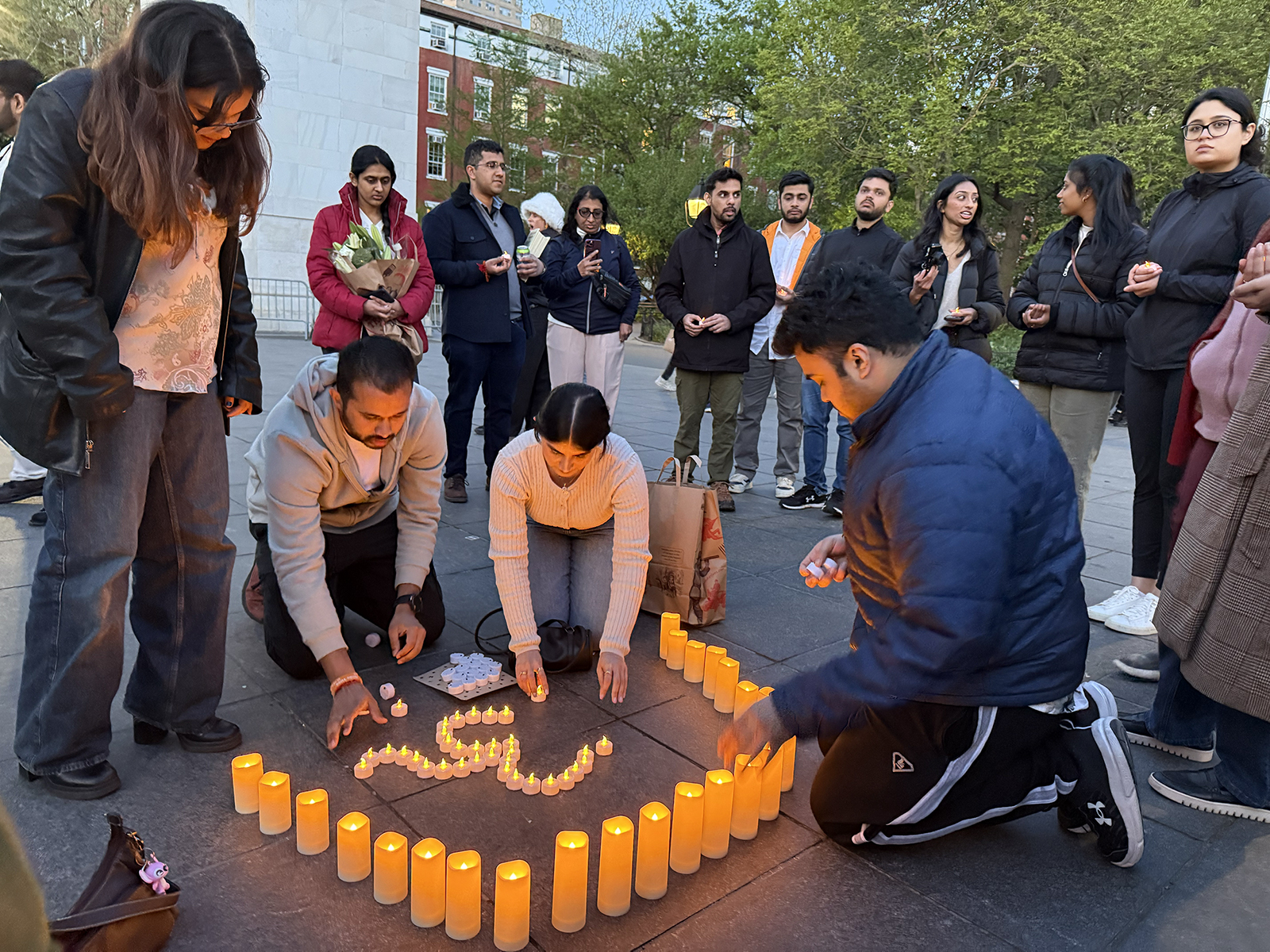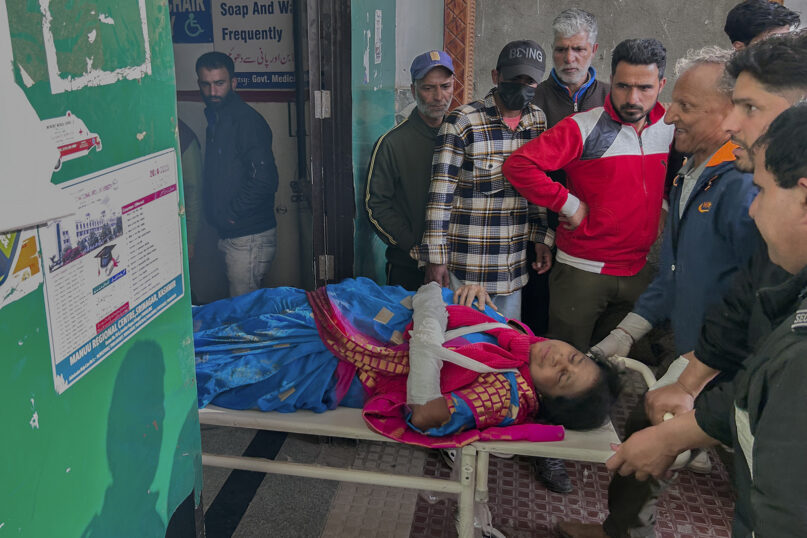
(RNS) — On April 22, tourists visiting the Indian side of the divided province of Kashmir were enjoying a spring afternoon in Baisaran, a lush mountain valley sometimes referred to as a “mini Switzerland,” when gunmen opened fire. The assailants “came at leisure,” said one survivor, shooting at families and young honeymooning couples, leaving 26 dead and injuring dozens.
And according to some survivors and Kashmiri locals, the assailants, suspected to be members of the pro-Pakistani Kashmir Resistance Front, singled out Hindus, who made up all but two of the victims, one of whom was reportedly made to recite Islamic sacred verses before he was shot.
The Kashmir Resistance Front is an alleged offshoot of Lashkar-e-Taiba, a terrorist organization dedicated to taking all of Kashmir for neighboring Pakistan. Since the shooting, Indian authorities have demolished the homes of suspected militants and deported Pakistani citizens living in Indian-controlled Kashmir. Pakistan has denied any ties with the terrorism, and the KRF has retracted initial claims of culpability.
In the United States, Hindu groups from Sacramento to Long Island to Washington have held vigils for the victims and protests against the terrorists. While some have expressed anger, not only at the loss of life but at what many see as a denial of Hindus’ long history in Kashmir, others at the vigils said the situation warrants increased advocacy for peace, urging empathy even toward the attackers.
But the most common reaction was a need to unite as Hindus. “It reminds us that we are one community, one family,” said Indu Viswanathan, a second-generation Hindu American born and raised in New York, at a vigil organized via group chat a few days after the shooting. “Even though we are 10,000 miles away, we have felt lost since the day happened. We feel the weight of the sadness of this violence in the land of Saraswati,” she told the small crowd of young people, referring to the Hindu goddess of knowledge, who is understood in Hindu lore to partially dwell in Kashmir.

Indu Viswanathan, center, speaks during a vigil in honor of victims of a recent terror attack in Kashmir, at Washington Square Park on April 27, 2025, in New York. (RNS photo/Richa Karmarkar)
“Let the light of Saraswati illuminate a path for the entire Hindu community towards healing, skillful action and greater awareness to make our world safer for Hindus,” Viswanathan added.
The group read the names of the victims and joined together in a Sanskrit peace prayer. Colorado native Lakshitha Nagesh, a 26-year old health care worker, read the names and backgrounds of the victims, some who had been married for just a few months and some who had been on a pilgrimage with their family. Several were described as “affable” and “loving.” Attendees left flowers and candles at the photos of the 26, adorned with the Om sign of Hinduism.
Nagesh said the shooting had brought together young Hindus, who often struggle to overcome divisions in the diaspora. “Some of them don’t want to be associated with Hinduism,” she told RNS. “It’s not just a spirituality or religion, but at this point, it’s also connected heavily with politics, with the current ruling party in India,” she said.
Indian Prime Minister Narendra Modi has divided the Indian diaspora in his suppression of minorities, particularly Muslims, and his espousal of Hindu nationalism. On social media, the recent attack in Kashmir has amplified ideological splits on Kashmir, which some have called an act of resistance against the “Hindutva settler occupation,” echoing language used in defending Palestinians in the West Bank to object to India’s policies in divided Kashmir.
“There are many people that want to distance themselves from that identity as much as possible, because they believe in a very secular, broad view and therefore they don’t want to hurt somebody else’s sentiments,” said Nagesh.

Paramedics carry a wounded tourist on a stretcher at a hospital in Anantnag after assailants indiscriminately fired at tourists visiting Pahalgam, Indian-controlled Kashmir, April 22, 2025.(AP Photo/Dar Yasin)
But the attack also summoned feelings of resentment that Hindus have to answer for Modi’s actions. One 22-year-old student at the Washington Square Park vigil, who preferred to remain anonymous for fear of endangering her H-1B visa status, said she received messages from her Pakistani friends asking why she is against them.
“This attack has catalyzed a lot of 20-somethings to think critically about why we as Hindus never get our share of justice and our share of visibility in the media,” she said. “The fact that this isn’t a 300-person event, and there aren’t more spaces like these where we can process our grief, speaks volumes.”
Snehapriya Rao, a “1.5 generation” Hindu American who came to the U.S. at 13, said most Instagram and Twitter posts she has seen on the attack give a “one-sided narrative” that “erases the long history of persecution in Kashmir,” especially the mass exodus of Hindu Kashmiris fleeing violence in the late 20th century.
“If you do read about it, it’s like, ‘Oh, this is just yet another terrorist attack,'” said Rao, who runs a Facebook page called Hindus for Decolonization. “They’re not talking about the context that Kashmiri Hindus have been targeted for ethnic cleansing and genocide for nearly 700 years, since the Islamist colonial era.”
Nagesh said the complexities of Kashmir give second-generation Hindus a chance to do their “due diligence” in understanding and respecting the truth of their ancestors. “History as we know it now is being rewritten in so many different forms that it’s genuine for misunderstanding to arise,” she said.
Viswanathan, who teaches at the Hindu University of America, said the ideologically pluralistic tradition of Hinduism means that solidarity will always look different for her community than for other ethnic and religious groups. She is cautious, however, of solidarity based on fear.
“The easiest thing is to organize around fear, but it’s not good for people, and it’s not good for society, and it doesn’t last,” she said. “The really dharmic way to organize is around truth, and around our highest selves.”
